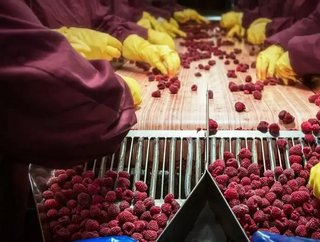Problems in the food industry go beyond Brexit, says GMB

According to the GMB – UK’s worker union group – problems in the food industry go far deeper than the impact of Brexit.
The union stated that the focus should be on the industry’s wider performance rather any specific company’s troubles; for example, the Food Federation said the UK’s crisp industry has been hit by a substantial labour shortage thanks to the decision to leave the European Union.
This is one of many problems plaguing the food industry, according to Eamon O’Hearn, GMB National Officer.
“GMB notes the comments made by the FDF but believes that there are a number of issues affecting the UK Food and Drink industry, not just Brexit.
“Whilst there are clearly labour challenges arising from the recent Brexit vote, day to day industrial relations haven’t changed.
“Perhaps rather than focusing on the loss of 10% of employees in one company, we should be looking at the industry's wider performance.
“GMB believes that standards in the industry are a contributing factor.
- RELATED STORIES:
- Attribytes launches Easy Data Pool for data capture in food manufacturing
- Manufacturers: avoid being the next food safety scandal
- When food is dangerous to people and to manufacturers' reputations
“There are many areas of high turnover in the industry that - seasonal workers declining to return to the UK aside - are frequently a result of tough working conditions, relatively low wages, including the compression of wage rates for work of higher skill, and limited access to career development opportunities.
“Raising training standards as a way to help recruit more workers to the industry, was as outlined in the Government's Food and Drink strategy, co-authored by the FDF, which acknowledged that there was a significant pool of labour that was untapped, and the question is why?
“However the trend across the industry has been to close pension schemes, cut terms and conditions, downsize the workforce and introduce increasingly longer working patterns, so it's no wonder that the industry is not seen as a first choice for many workers.
“Until these trends, and the underlying industrial relations issues are addressed, the rates of turnover, deskilling and labour shortages are only going to continue, regardless of Brexit.
“The UK finance industry always maintains that to secure the best talent they have to pay accordingly, and GMB believes this applies equally to the skilled work performed by thousands of workers in the UK Food and Drink industry.”
- Top 10: Chief Manufacturing OfficersProduction & Operations
- Aerospace Insight: Where does Boeing make all of its PlanesProduction & Operations
- Comau's Automation Solutions for Outside of ManufacturingAI & Automation
- Toyota Partners with Artelys to Streamline Post-ProductionProcurement & Supply Chain






